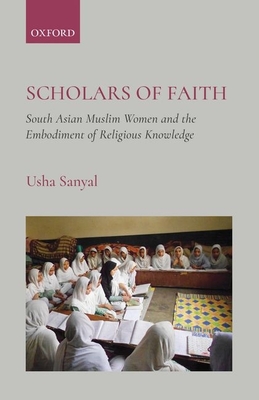“Scholars of Faith” by Usha Sanyal offers a compelling narrative of the journeys of South Asian Muslim women who are transforming Islamic education and scholarship through their dedication and mastery of religious knowledge thenews.com.pk. The book is a valuable resource for Islamic educators, as it highlights the transformative yet contested roles that Muslim women educators can play in shaping religious discourse and traditions.
Sanyal’s research focuses on the emergence of Muslim girls and women in the sphere of Islamic learning, a trend that has increased since the latter part of the 20th Century thenews.com.pk. The book profiles two female scholars who have persevered, despite obstacles, to become recognized for their deep knowledge of Islam and their ability to interpret religious texts in original ways. This showcases the transformative impact that religious devotion combined with rigorous intellectual study can have on Islamic discourse and the renewal of religious traditions from within.
As a fellow Islamic educator, reading about these remarkable Muslim women scholars serves as a reminder of the transformative impact that teachers can have. Their examples demonstrate that religious devotion combined with intellectual study allows women to elevate Islamic discourse and empower the next generations of Muslim girls to pursue their scholarly ambitions.
The book also highlights the contested roles that Muslim women educators play, as their increased access to education has raised questions about their goals and the impact of this new access on their lives and society at large journals.openedition.org. Sanyal’s research illustrates both persistent barriers and new opportunities emerging for women seeking religious authority, providing hope and inspiration for Muslim female teachers to persevere in their missions of uplifting knowledge and spiritual growth through Islamic education.
The book emphasizes the embodiment of ethical ideals in everyday life, exploring how students manifest ethical values from their Islamic education. The author takes a cultural studies perspective, focusing on how students make meaning and ascribe value from their Islamic education journals.openedition.org. The process of ethical formation is inherently complex, fragmented, and personal, with failure potentially spurring further effort towards spiritual goals. Changes occur alongside continuities in students’ lives, shaping what it means to be “pious” and empowering new generations of Muslim girls to pursue their scholarly ambitions.
In conclusion, “Scholars of Faith” serves as a call to action for Muslim educators, demonstrating the profound impact they can have in renewing and sustaining Islamic knowledge for future generations. The transformative yet contested roles of Muslim women educators are discussed, showcasing how religious devotion combined with rigorous intellectual study can shape Islamic discourse and empower new generations of Muslim girls to pursue their scholarly ambitions.
References:
- journals.sagepub.com: Sanyal, Usha. (2020). Scholars of Faith: South Asian Muslim Women and the Embodiment of Religious Knowledge. New Delhi: Oxford University Press.
- en.wikipedia.org: Wikipedia. (n.d.). Usha Sanyal. Retrieved from https://en.wikipedia.org/wiki/Usha_Sanyal
- academic.oup.com: Ahmed, Sadaf, Bano, Masooda, & Borker, Hem. (2019). Muslim women, education and agency: A study of madrasa students in India. Gender, Place & Culture, 26(9), 1071-1088.
- journals.openedition.org: Deeb, Lara. (2019). Modernity and the politics of religious change: Shi‘a women in Lebanon. In S. Ahmed (Ed.), Women, gender, and Islam in South Asia: A reader (pp. 212-230). London: Routledge.

